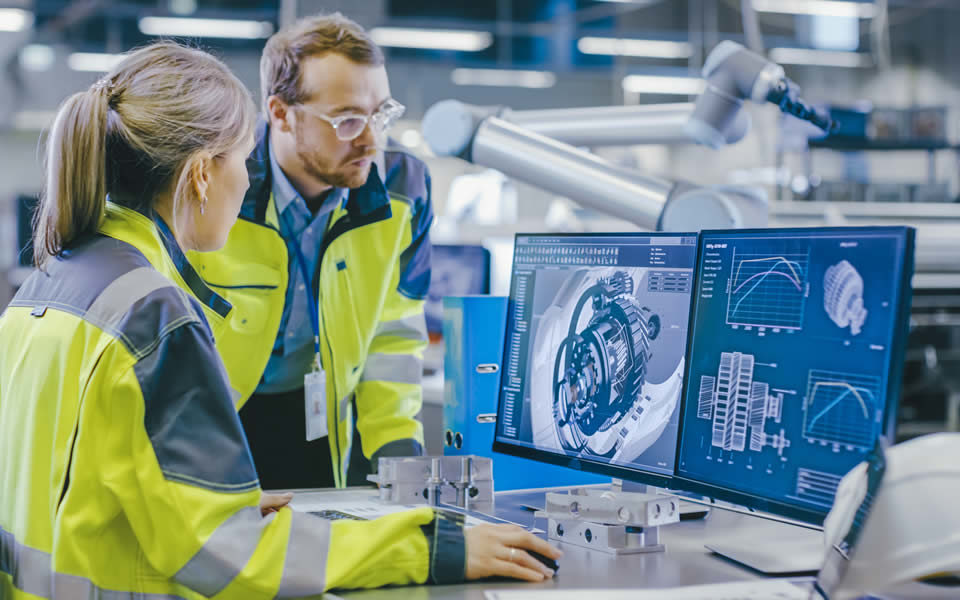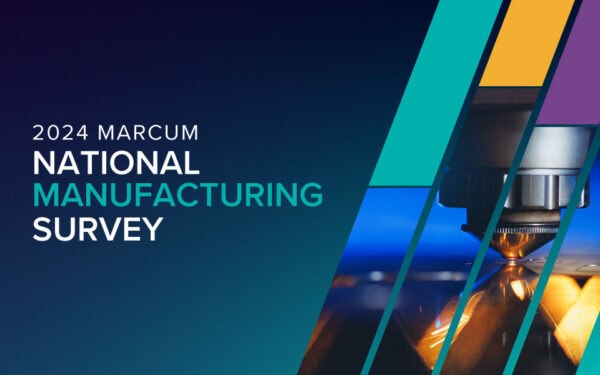Manufacturing Companies – Prepare for the Future
By Greg Pasiadis, Senior Manager, Assurance Services
Baby Boomers: The generation that helped shape modern manufacturing
After World War II, America’s industrial landscape really took off, and the babies were booming! Skilled labor forces were strong, and America was cranking out widgets left and right. Fast forward to the 80s and 90s, these baby boomers stepped into roles in company management, on the factory floor, or were lucky enough to continue owning the family business for the next generation. People went to work, typically 8 to 5, came home, and did it all again until it was the weekend.
Today, the boomer generation—commonly defined as those born between 1946 and 1964—is ready to enjoy retirement. The pandemic accelerated this, as many boomers didn’t want to deal with work from home, masks in the shop, and the fear of COVID (rightfully so). However, not all of them retired or changed roles at once. Boomers are a large generation in workforce numbers, so many still are working and eyeing that retirement which naturally will be in the near future.
Enter, the Great Resignation…
The Great Resignation is a popular term within the working community that has sprouted during these monumental changes. As this has hit every industry, studies referenced within the 2022 Marcum National Manufacturing Survey have indicated that manufacturing has been impacted the hardest, with skilled laborers retiring, changing careers, or simply opting out of the workforce for less physically strenuous jobs (e.g., drive people in your car and get paid). The pandemic jumpstarted the Great Resignation and its effects are not close to complete, so companies need to internally prepare and focus on how it will impact their future strategies and culture. With 75% of 2022 Marcum National Manufacturing Survey respondents citing their workforce as critical to the success of their business, this is clearly cause for concern.
…and the Great Generational Transfer
Is the next generation ready to step in? Yes, but this handoff will need extra focus. Manufacturers need to monitor this transition and think of the Great Resignation more as a Great Generation Transfer. Generation X, Millennials, and Generation Z have different values that need to be taken into consideration.
During this generational transition, here are a few concepts to keep in mind:
Change is unavoidable
If we’ve learned anything during recent years, no one can avoid change and sustaining a culture that maintains an open mind for change is critical for adaptability and sustainability. Don’t react instantly and emotionally based on a loud headline. Instead, allow that story to develop before change is implemented.
Remote, in office, or hybrid
There is a constant theme small talk of recent years: ‘Where is everyone working?’ Of course, in manufacturing the warehouses or factories cannot operate through Zoom. The critical component is ensuring a culture of consistency to build trust. One way to lose trust in the next generation is to demand your workforce to be in office, while leadership or certain departments are working remote. If this is the case, messaging is important to ensure that the workforce fully understands why some employees are in the office and others are not.
Technology is a major point of operational improvement
Surprisingly, 29% of respondents to the 2022 Marcum National Manufacturing Survey Report still don’t use any enterprise resource planning (ERP) system. For those that do use an ERP the benefits are clear, and there are always updates, maintenance, or debate for the latest and greatest software or cloud-based system. One way to really empower this next generation is to invest in your technology. Integrate systems, drive visibility across departments, and explore new options that could be innovated in your industry. Younger professionals were born with a tablet in their hands. Allow them to lead and work with the new technology!
Build a team that sticks
If your business culture does not incorporate a focus on emotional intelligence, you are behind and need to catch up. Genuinely invest in your workforce’s strengths, behaviors, motivations, and interests as a retention tool. Key word is “genuinely,” because you can have these practices in place (e.g., The Birkman Method®, TetraMap, etc.), but then not actually walk the talk. Know your people and build that intimate sense of two-way trust.
Manufacturers lately have felt the stress of losing their best professionals and skilled workers. It is too easy for employees to find new jobs, and cling to better pay and benefits that will help their families. We found in the 2022 Marcum National Manufacturing Report that, due to inflation, inflation, 77% of companies plan to increase wages by at least 5% in the next two years, with 26% saying they plan to boost wages by 10% or more. The increases obviously cannot continue at this rate and enticing employees to stay must go beyond pay and benefits. Culture is a viable reason, and the transition to the next generation is inevitable. Let’s convince the new leaders that change actually means improvements and benefit, and build a culture where trust is not demanded but fluid amongst everyone in the huddle lining up to better the team.
Reach out to Marcum for advice and consultation as your company navigates the years ahead!









